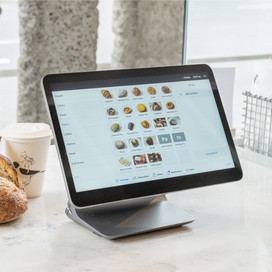Table of contents
2020 and 2021 delivered many unprecedented and life-changing challenges. Amongst business closures, work-from-home orders and a raft of rules and restrictions changing how we lived and worked, empathy became an even more essential leadership skill. Now businesses and customers are facing a cost if living crisis. Customers are re-evaluating how they spend their hard-earned dollars and businesses are finding new ways to engage their audiences. Read on for tips on how to lead your business with empathy through uncertain times.
What is empathy?
Empathy is the capacity to share another person’s feelings, thoughts or experiences by imagining what it would be like to be in that person’s situation. Being empathetic means being aware of, and sensitive to, what someone is experiencing from within their frame of reference – the ability to place yourself in someone else’s shoes.
Being empathetic doesn’t mean that you necessarily agree with how someone sees things; just that you’re willing and able to appreciate what they’re going through.
There are three types of empathy:
- Cognitive empathy: Where you understand intellectually what someone else is going through; also known as perspective-taking.
- Emotional empathy: Where you feel the emotions of another person alongside them.
- Compassionate empathy: Where you feel what someone is going through, share their feelings and take action to help.
Why lead with empathy?
Empathy is a powerful tool that allows business leaders to be open to and understand points of view that are different from their own. Leading with empathy is an integral part of leading others as it builds trust, strengthens relationships and leads to greater collaboration and better productivity.
As a leader, you’ll inevitably need to make difficult decisions. Empathetic leaders take the time to consider and understand the human element of their choices. What will their employees think and feel? How are different team members likely to react? How can you support them with what they’re going through?
How leading with empathy can strengthen your small business
From building employee engagement to encouraging innovation and looking for opportunities to elevate the customer experience, fostering an empathetic workplace can deliver significant benefits for your small business.
- Improve employee engagement: When you show empathy, you set the tone that your employees matter. An empathetic leader makes their people feel valued, which energises teams, makes employees want to come to work, and creates a workplace environment where people collaborate to achieve success and are motivated.
A leader with empathy is also well placed to deal with difficult situations and issues such as poor performance and high absenteeism. Having a strong relationship with your employees means you’re more likely to uncover the cause of these types of issues and puts you in a position to authentically support any team members who are struggling.
- Stimulate creative thinking and innovation: Empathy is a critical driver of successful innovation. To design a product or service that effectively meets customer needs, you should start by putting ourselves in the customer’s shoes. What problem are they trying to solve? What are their key pain points? How does your product or service meet their needs? What would motivate them to make a purchase decision?
Ultimately, empathy can help us to innovate more quickly and effectively, satisfy more customers, sell more products and generate greater revenue.
- Elevate the customer experience: A 2020 Xero whitepaper found that consumers expect small businesses to demonstrate more empathy following the pandemic. Some of the ways they showed empathy during 2020 were changing the way they operate to better protect customers, continuing to trade throughout the pandemic, and offering a wider range of delivery options.
93% of customers surveyed said that if small businesses had demonstrated empathy towards them and their local community, they were more likely to trust that business, buy more, and recommend the business to family and friends.
How can I become more empathetic?
Empathy is a natural part of the human condition – we’re wired for sociability and attachment to others, and driven to connect and understand the people we interact with.
A key trait of empathetic people is their ability to listen attentively. If empathy doesn’t come so naturally to you, practice putting your complete focus on the person you’re engaging with – avoiding getting distracted by your phone, computer screen or something else happening in your space. Make it clear that you’re listening by repeating back some of the things they’ve said, and pay attention to verbal and non-verbal cues.
You don’t need to agree with someone to show empathy – but you do need to give that person your attention and set aside your own perspective to learn what they’re thinking and feeling.
With uncertainty firmly on the agenda for business owners in 2021, empathy has become an even more important trait for small business leaders. The ability to ‘put yourself in someone else’s shoes’ isn’t just important for building trust and fostering stronger workplace relationships – it’s vital to keeping your business running smoothly.
![]()











